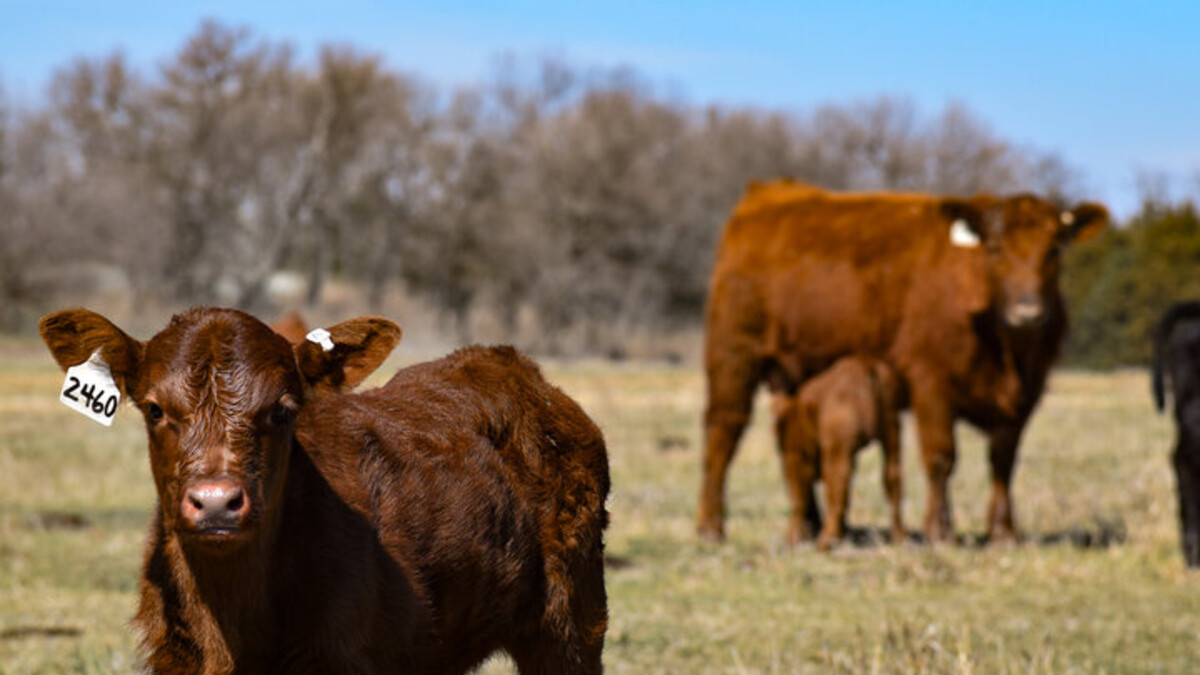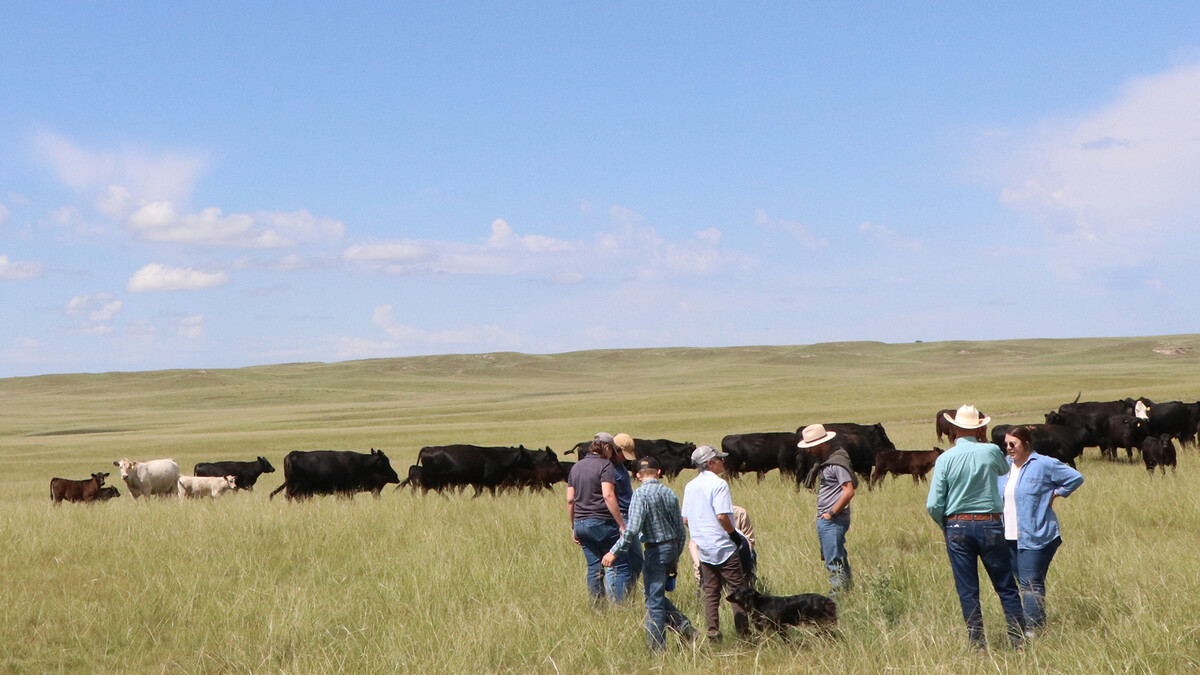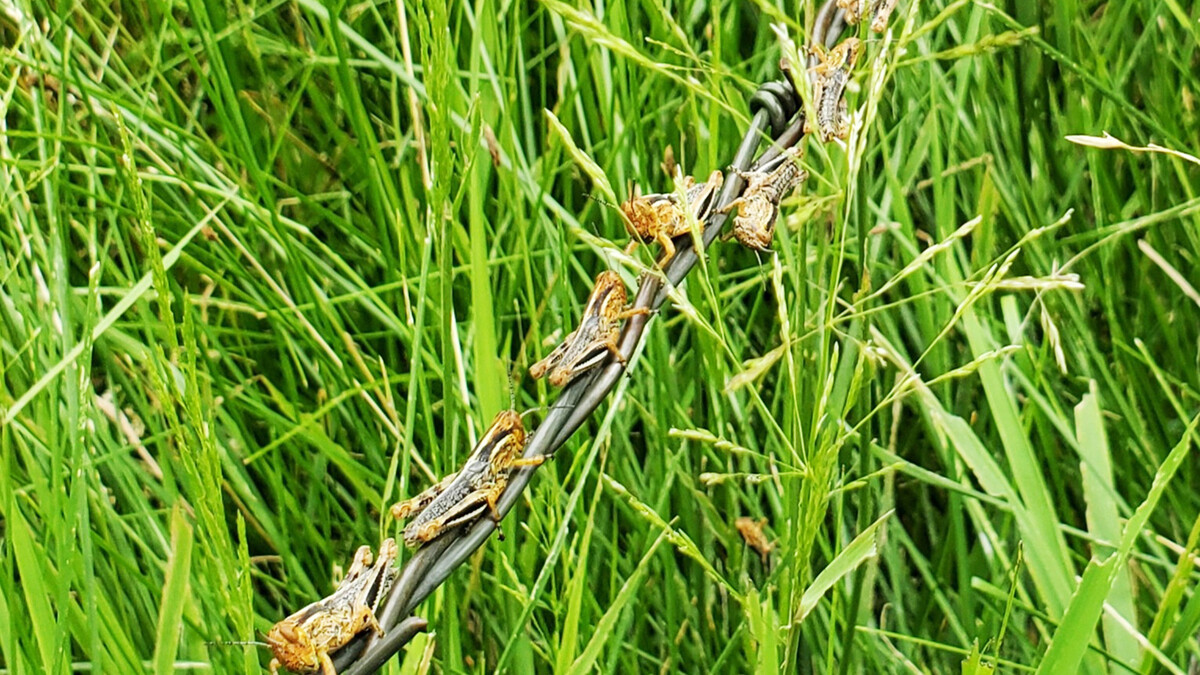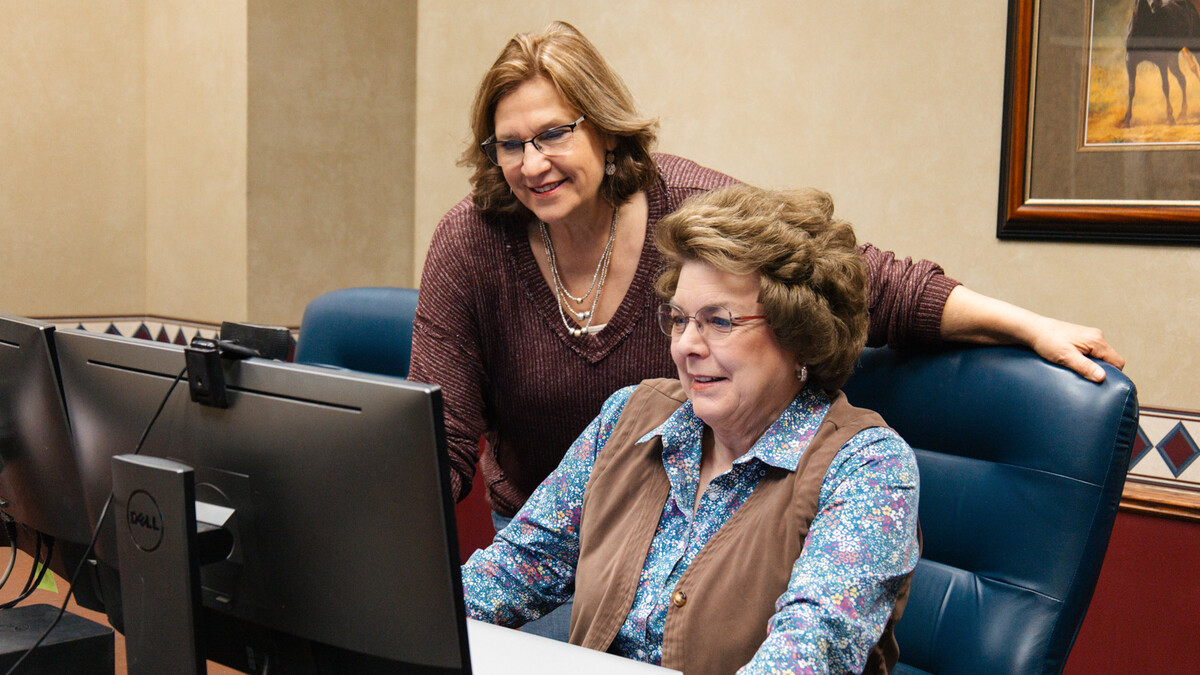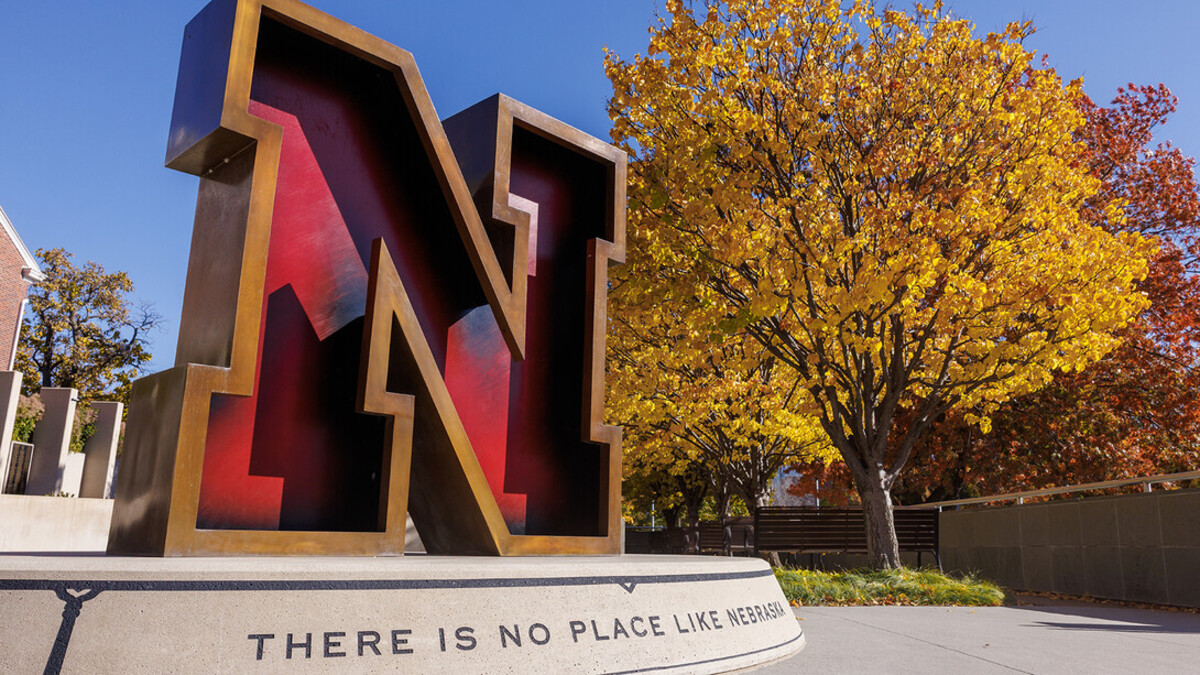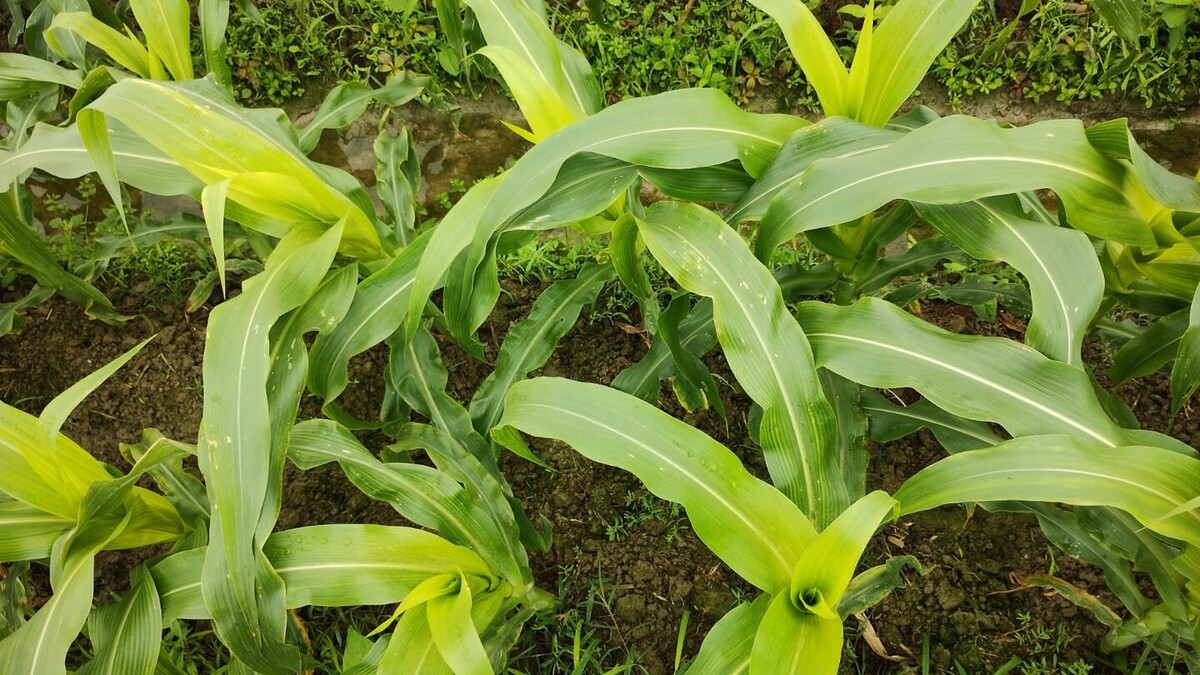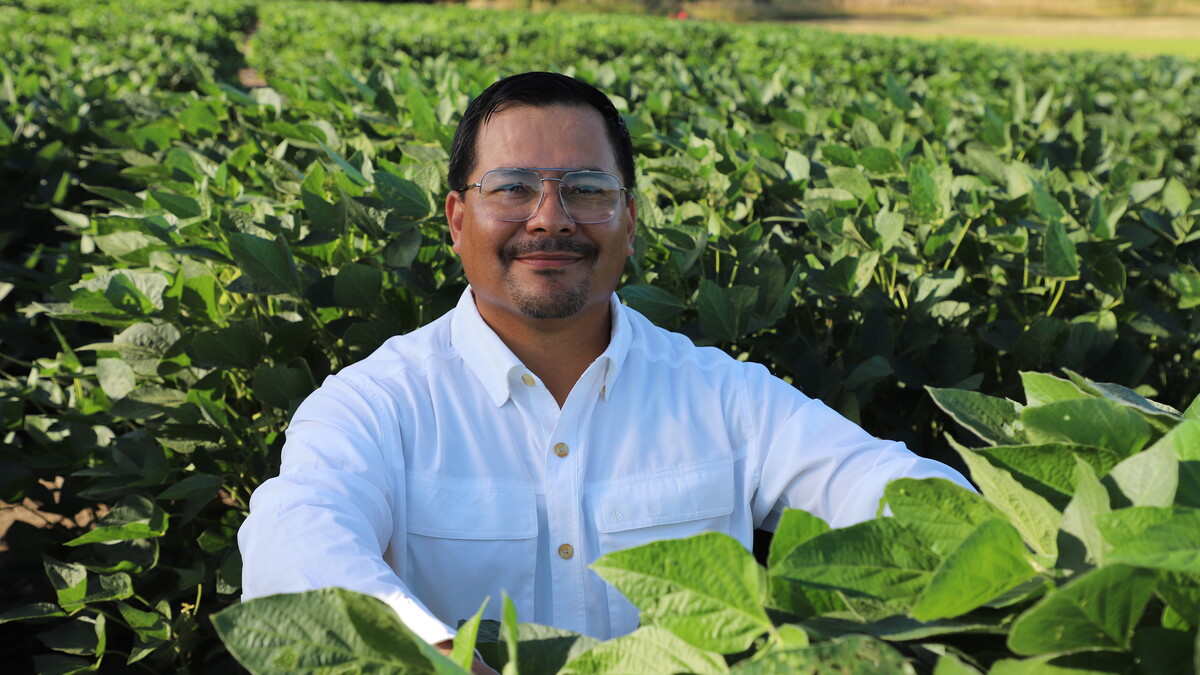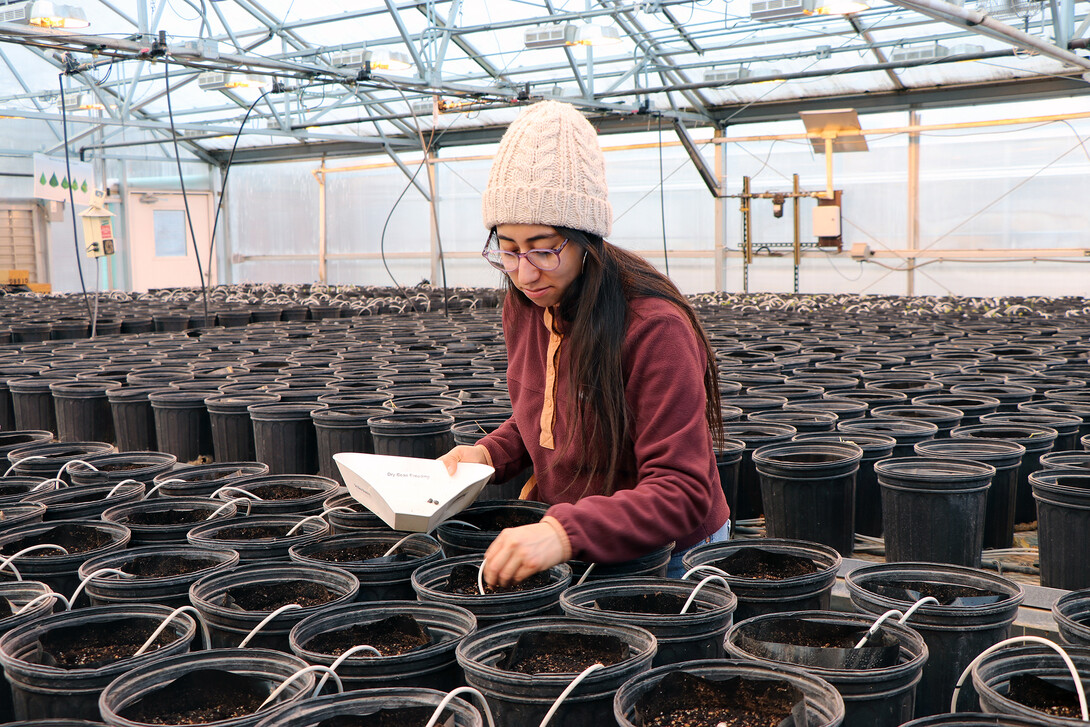
Lincoln, Neb. —A summer in western Nebraska has provided inspiration for Maria Teresa Alvarado, an intern from Chile and an undergraduate student at the University of Concepcion.
Alvarado learned about the internship from Kainyon Tay, head of the legume program in Chile with the National Research Institute of the Ministry of Agriculture (INIA).
“I worked with Tay in Chile. He works with soybeans, garbanzos, and dry beans,” she said. “He told me about the internship, and I applied.” Tay knows Carlos Urrea, UNL dry bean breeder at the Scottsbluff Panhandle Research Extension and Education Center (PREEC). The two have collaborated on winter nurseries and incorporated genes for weevil and bean common mosaic virus resistance into Chilean germplasm.
Alvarado has been working with Urrea and his team to select dry bean lines for the program. This involves making selections based on characteristics such as plant architecture, days to flowering, disease resistance, and days to harvest. Individual plants were selected during the early stages of breeding, with entire entries selected in later stages.
Additional breeding research experience included conducting cooking time and slow-darkening trials, assisting with mother-and-baby trials, inoculating and scoring bean common bacterial blight trials, and performing new hybrid combinations. In addition, Alvarado prepared seed samples for the winter nurseries, including sizing the seed for quality. She also observed the work of the seed inspector and the fumigation process required for seed shipped to Chile.
Alvarado gained extension experience through making presentations at the PREEC Panhandle Agriculture and Technology Tour, interacting with growers in the mother-and-baby trials, and interacting with diverse student workers. She also met with industry representatives, including a visit to Trinidad Benham Corporation, and learned about bean quality standards and procedures.
With the end of harvest and the bean lines picked for the next breeding program, Alvarado will be heading home in December. She looks forward to completing her thesis on the Toromiro tree, which is a legume. The legume uses bacteria species to incorporate and make nitrogen available to the plant. Alvarado is looking to use PCR techniques to identify the bacteria species.
“I like the aspect of agronomy microbiology and legumes, which are a health food and a staple for many people. I would like to become a breeding specialist selecting new variants of good and bad bacteria,” she said. The bad bacteria create disease, but the good improves yield or simulates nitrogen. Another aspect of beans Alvarado would like to work on is making all the seeds' nutrients available to humans. “Beans have iron, but it is not available to humans. I would like to improve the plant and make it (iron) available.”
Alvarado would like to return to western Nebraska and the dry bean fields. “I’m very happy with my time here, I met many people, international and local farmers. It has been one of the most amazing experiences of my life. I’m so grateful for the way people received me and made me comfortable.”
This internship is a valuable program for training the next generation of plant breeding professionals.
